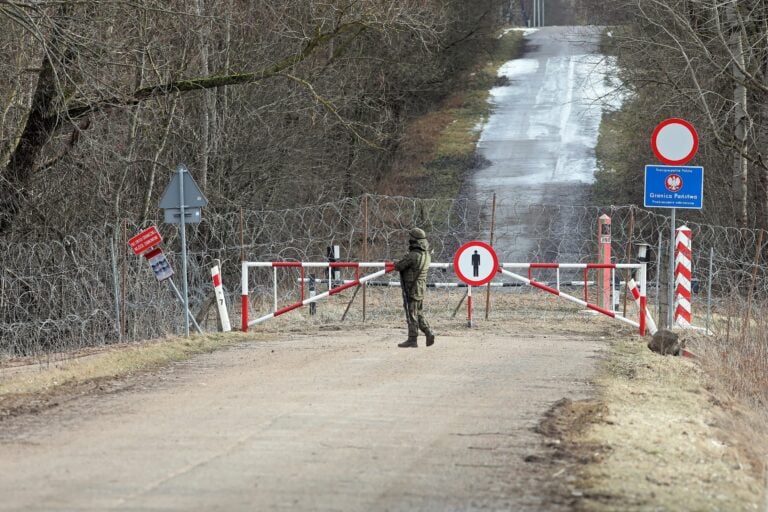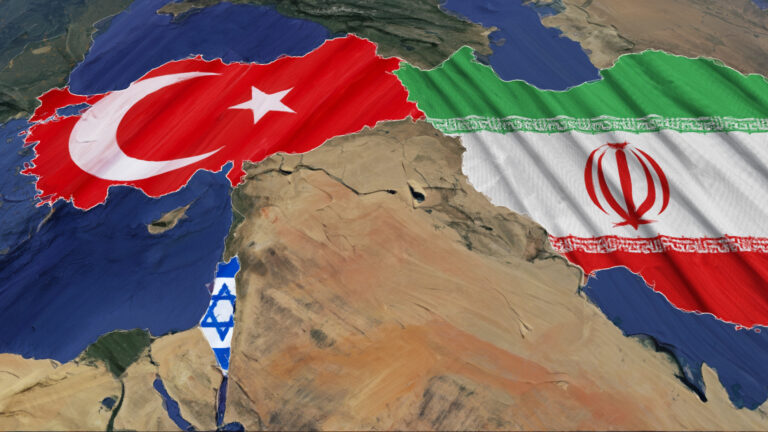by Leo Kendrick
As the recent influx of migrants from Belarus to the border with European Union member states Poland, Lithuania, and Latvia has grabbed headlines of late, Turkey’s role in the crisis began to be discussed earlier this week after a statement by EU commissioner Ursula von der Leyen released Monday alleged the complicity of airlines from “third party countries” in bringing migrants to Belarus. Among the accused airlines was Turkey’s national carrier, Turkish Airlines.

According to Deutsche Welle, confidential EU documents on the matter alleged that Turkish Airlines had been working in cooperation with Belarusian national carrier Belavia to carry migrants on 4-7 weekly flights from Istanbul to Minsk, with each flight containing approximately 180 passengers. Upon arrival in Minsk, migrants make their way towards borders with EU member states Poland, Latvia, and Lithuania.
Ankara was also accused explicitly by Polish Prime Minister Mateusz Morawiecki of aiding Belarusian efforts to bring migrants to the EU border. In a statement, the Prime Minister said “We see that Turkey is acting in synchronized fashion with Belarus and Russia, and we are not pleased with this.” Morawiecki reminded that Poland had sent assistance to help deal with Turkey’s wildfires this past summer, saying “We saw one or two months ago that Turkey wanted to work closely with us. We saw that our efforts to help revive Turkey’s tourism industry and extinguish the wildfires were one-sided.”Turkish Foreign Minister Mevlüt Çavuşoğlu refuted these allegations this past week, saying “The allegations about Turkey are untrue, technical teams can come from Poland to Turkey.” In a phone call on Wednesday with his Polish counterpart Zbigniew Rau, Çavuşoğlu characterized the allegations against Turkey as ‘baseless’, inviting Polish experts to come to Turkey to investigate the claims against Turkish Airlines in order to prove their baselessness. In a written statement on Thursday (11 November), Turkey’s foreign ministry said it empathized with the situation being experienced by Belarus’ neighbors, saying “Turkey is one of the countries which understands best the current situation confronted by Poland, Lithuania, and Latvia.” This statement made reference to the high numbers of immigrants that have come across Turkey’s southern and eastern borders in recent years.

Turkish Airlines also responded directly to the allegations, saying that all necessary safety precautions and international regulations are being followed on their flights. Echoing Çavuşoğlu’s statement, the company described the recent allegations as “baseless”. Belarus’ Belavia Airlines also released a similar statement denying the allegations.
As groups of immigrants, mostly from the Middle East and Africa, have amassed on the Belarus-EU border in recent months, Belarus President Alexander Lukashenko has been accused by EU member states of encouraging and aiding irregular migration into the EU from Belarus as a retaliation against EU sanctions. Belarus-EU tensions have been high in recent years, intensified by such events as last year’s country-wide protests, an allegedly fraudulent presidential election, and the forced downing of a Ryanair flight by Lukashenko’s government earlier this year. The flight, which was forced to land while crossing through Belarusian airspace under the pretense of a bomb threat, resulted in the arrest of anti-government dissident and activist Roman Protasevich, in a move widely condemned by the EU and other western governments.
Early Friday (12 November), a statement by Belavia Airlines announced that as a result of a request from Ankara, Syrian, Iraqi, and Yemeni nationals would be prevented from boarding all Belarus-bound flights leaving Turkey, effective immediately.
The recent events in Belarus and President Lukaschenko’s use of migrants as a tool for political reprisal has drawn comparisons to similar events on the Turkish-Greek border in spring of 2020. After years of threats, Turkish President Recep Tayyip Erdoğan announced on 4 March 2020 that his government would no longer prevent irregular migration into the EU from Turkey. The move, which resulted in a flood of migrants into Greece, was viewed as reprisal for perceived unequalness of the refugee burden resulting from conflicts in Syria, Afghanistan, and beyond. Turkey, home to over 3 million refugees, has long accused Europe of not sharing the hosting burden equally.














